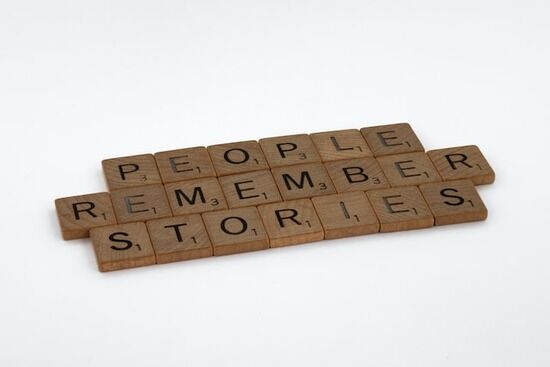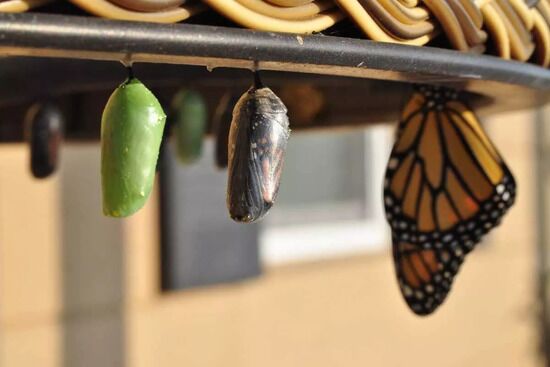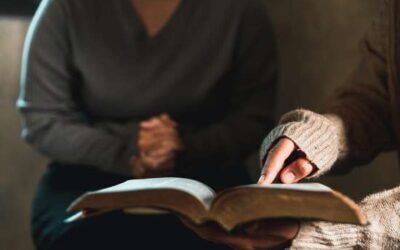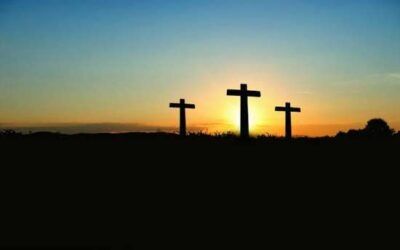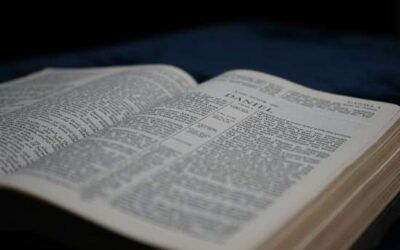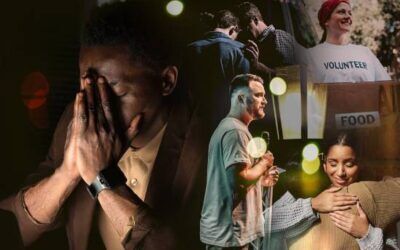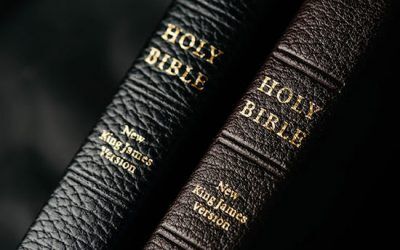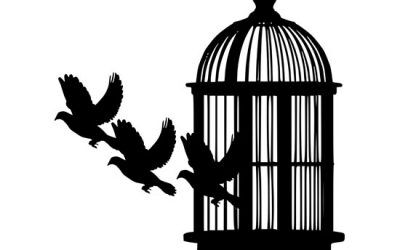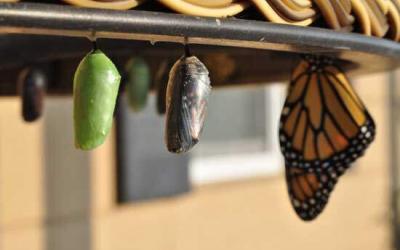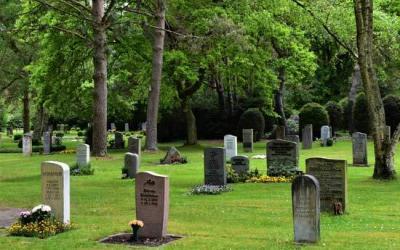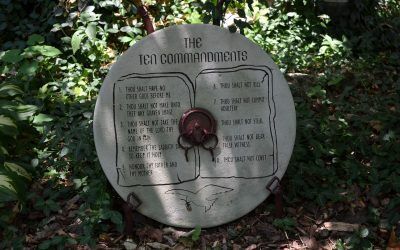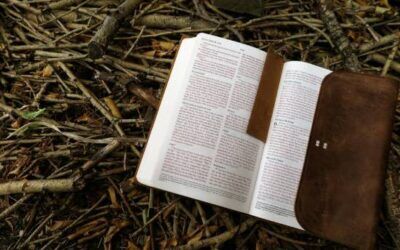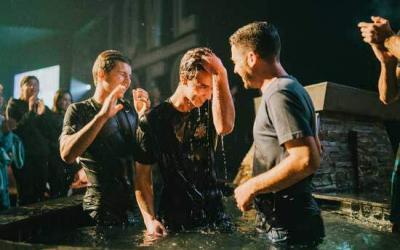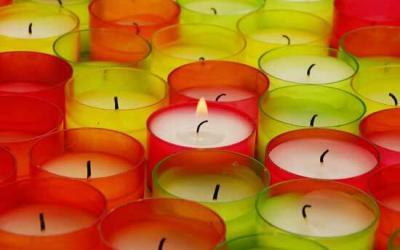Like many Protestant Christians, Seventh-day Adventists believe in the practice commonly called the Lord’s Supper or Holy Communion. They drink grape juice and eat unleavened bread in obedience to Jesus’ direct instructions to do it in remembrance of Him (1 Corinthians 11:24–25).
This post will walk you through the details of this practice and why it’s so important to Adventists. You’ll learn:
- The background to the Lord’s Supper
- What it entails
- What it symbolizes
- Why Adventists practice foot washing before the Lord’s Supper
- What to expect at an Adventist Communion service
- Who can participate in these ceremonies
Let’s begin by looking at the official statement of the Seventh-day Adventist Church on this belief:
In this experience of communion, Christ is present to meet and strengthen His people.
As we partake, we joyfully proclaim the Lord’s death until He comes again.
Preparation for the Supper includes self-examination, repentance, and confession.
The Master ordained the service of foot-washing to signify renewed cleansing, to express a willingness to serve one another in Christlike humility, and to unite our hearts in love.
The communion service is open to all believing Christians.”
Now, we’ll go back to the roots of this practice.
What is the background to the Lord’s Supper?

Photo by Tim Wildsmith on Unsplash
Adventists trace the ordinance of the Lord’s supper back to the final days of Jesus’ life. This supper is mentioned in two places in the Bible: the Gospels and Paul’s writings in the New Testament (1 Corinthians 11:23–25).
The Lord’s Supper, also called the Last Supper, has its roots in the Old Testament Passover—the Jewish celebration of the Israelites’ exodus from Egypt.
The Israelites had been enslaved by the Egyptians, but God was working miracles to free them. Because of Pharaoh’s stubbornness to release the Israelites, He sent plagues on the Egyptians.
On the night before they left Egypt, God asked the Israelites to take part in a ceremony that became known as Passover. Through Moses, He instructed the Israelites to sacrifice a lamb and smear its blood on their doorposts.
The reason?
For the tenth plague on the Egyptians, a destroying angel would come through the land and kill the firstborn of every home. But when the destroying angel came to a home with blood on the doorposts, he would “pass over” that house and not kill their firstborns. Even the Egyptians had the opportunity to do so and be spared the punishment (Exodus 12:21–28).
When the morning came, the Israelite firstborns were saved, while throughout the land, Egyptian families mourned the loss of their firstborn children and livestock (Exodus 12:29–30).
The Jews still celebrate this feast as a memorial of their exodus from Egyptian captivity. And Christians see it as an emblem or symbol of the death of Jesus on our behalf, sparing us from eternal death (1 Corinthians 5:7).
When Jesus celebrated the Passover with His disciples for the last time (why we call it the last supper), He established what we know as the Lord’s Supper:
“When the hour had come, He sat down, and the twelve apostles with Him. Then He said to them, ‘With fervent desire I have desired to eat this Passover with you before I suffer; for I say to you, I will no longer eat of it until it is fulfilled in the kingdom of God’” (Luke 22:14–16, NKJV).
Let’s explore what happens during this ceremony today.
What does the Lord’s Supper entail?

Image by Usman Yousaf from Pixabay
During the Lord’s Supper, believers take part in eating and drinking unleavened bread and grape juice together.
The Bible tells us that “Jesus took bread, blessed and broke it, and gave it to the disciples and said, ‘Take, eat; this is My body’” (Matthew 26:26, NKJV).
Then after the bread, “He took the cup, and gave thanks, and gave it to them, saying, ‘Drink from it, all of you. For this is My blood of the new covenant, which is shed for many for the remission of sins’” (Matthew 26:27–28, NKJV).
Just like in the Passover celebration, the bread is unleavened, meaning it doesn’t contain any leaven (yeast) (Exodus 12:18–20; Mark 14:1).
As for the drink to accompany the bread, the “fruit of the vine” refers to grapes.
While many faith groups use literal wine for communion, Adventists recognize the drawbacks of using alcoholic beverages (Proverbs 20:1; Romans 14:21; Ephesians 5:18) and use unfermented (nonalcoholic) grape juice.
As a final directive, Jesus instructed His disciples to “do this in remembrance of Me” (Luke 22:19, NKJV).
It’s in direct obedience to this instruction that Adventists practice the Lord’s Supper as a memorial of Jesus and His sacrifice for us.
But with Jesus saying the bread is His body and the drink His blood, you may be wondering what that really means…
Is the bread and drink the actual body and blood of Christ?
No, the bread and drink are not the actual body and blood of Christ. They are symbols for the purpose of remembrance.
Adventists don’t believe the bread and drink are anything other than bread and grape juice, just like they don’t believe that going under the water in baptism supernaturally cleanses a person from sin.
Instead, the bread and drink in the Communion service are symbols of Christ’s sacrifice.
Yet this supper is more than just a memorial meal.
It’s an open expression of our surrender to Christ and our continued desire to serve Him. We acknowledge the salvation and promise of eternal life which comes because of His broken body and shed blood.
We’ll delve more into these symbols next.
What does the Lord’s Supper symbolize?
The Lord’s Supper calls attention to the Passover, Jesus’ sacrificial death on the cross, the new covenant, and the Second Coming.
As we have seen, the Lord’s Supper took place during the time of the Passover when a lamb was sacrificed as a prophecy of the coming Savior.
Christ fulfilled that prophecy by His death and instituted the Lord’s Supper in its place.
Thus, the Passover was a symbol of the old covenant—God’s special relationship to ancient Israel (Exodus 34:27; 1 Chronicles 16:15; Psalm 132:12).
On the other hand, the Lord’s Supper is a symbol of the new covenant, which is God’s special relationship with all His people (Hebrews 8:13; 12:24).
It also points us to our reunion with Jesus when He returns.
During the Lord’s Supper, He told His disciples:
“But I say to you, I will not drink of this fruit of the vine from now on until that day when I drink it new with you in My Father’s kingdom’” (Matthew 26:29, NKJV).
So every time we take Communion, we look forward to the time we’ll take it with Jesus Himself in heaven.
And each aspect of the ordinance has symbolism too. Let’s take a brief look at them.
The unleavened bread
The bread without leaven points to Jesus’ body (Matthew 26:26).
Leaven represents sin (Luke 12:1; 1 Corinthians 5:8), so the unleavened bread reminds us of the sinless life Jesus lived.
Jesus identified Himself with the bread when He said, “I am the bread of life. He who comes to Me shall never hunger, and he who believes in Me shall never thirst” (John 6:35, NKJV).
The grape juice
The grape juice represents Jesus’ blood which was shed for our redemption (Matthew 26:27–28; Hebrews 9:22).
The Bible tells us that we are only saved through Jesus and His sacrifice for us on the cross, where He bled and died on our behalf (Leviticus 17:11; 1 John 1:7).
By believing in Him and accepting His gift, we have the assurance of salvation, and this is what Christ alluded to during the Last Supper.
The drink also points to how only Jesus can satisfy our deepest needs.
He said,
“If anyone thirsts, let him come to Me and drink” (John 7:37, ESV).
And to the woman at the well, He said,
“Whoever drinks of this water will thirst again, but whoever drinks of the water that I shall give him will never thirst. But the water that I shall give him will become in him a fountain of water springing up into everlasting life” (John 4:13–14, NKJV).
The elements of the Lord’s Supper are symbols of the spiritual fulfillment received in Christ. Just as food and water are necessary to live on earth, acceptance of Jesus is necessary for eternal life (John 17:3).
“Eating His body” and “drinking His blood”
During the Last Supper, Jesus said that the bread was His body and the drink was His blood.
This parallels John 6:48–58, where He said that the bread is His flesh which He gives for the salvation of the world. And to have eternal life, we must abide in Him by eating His flesh and drinking His blood.
What did He mean by all this?
He wasn’t talking about literally consuming His flesh and blood; He was using a metaphor for what it means to be intimately connected to Him by faith (John 6:63).
Christians live out this new life in Jesus Christ by surrendering our lives to God, obeying Him, claiming His promises, praying, studying the Bible, and living according to what we learn.
One of our fundamental beliefs states:
“Eating Christ’s flesh and drinking His blood is symbolic language for the assimilation of the Word of God, through which believers maintain communion with heaven and are enabled to have spiritual life…. Believers feed on Christ, the bread of life, through partaking of the Word of life—the Bible. With that Word comes Christ’s life-giving power.”1
This spells out the significance of the Lord’s Supper. It is an expression of what it means to have accepted Jesus as our Lord and Savior, all based on His death for us.
But you may have heard that Adventists also include what is called “foot washing” in the Communion service.
Here’s why.
Why do Adventists practice foot washing during the Lord’s Supper?
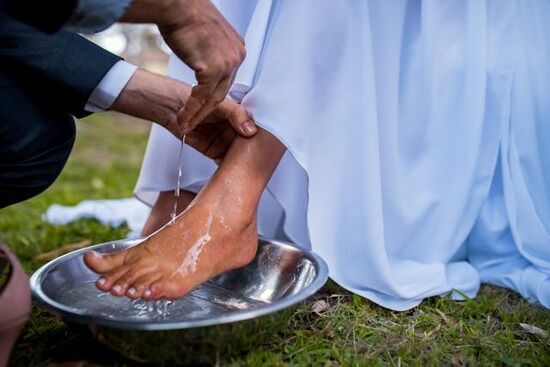
Photo by Samuel Lima
Though this practice isn’t widespread among Christians today, Adventists believe that foot washing (John 13) should be part of the Communion service.
When properly understood, it gives us a powerful message of what it means to be followers of Jesus.
The Bible tells us that Jesus washed the feet of His disciples just before they had the Last Supper. He did it to demonstrate humility and service:
“After that, He poured water into a basin and began to wash the disciples’ feet, and to wipe them with the towel with which He was girded” (John 13:15, NKJV).
But Peter was aghast that Jesus, whom He believed to be his master and the promised Messiah, would stoop to wash his feet (John 13:6–9).
However, Jesus insisted. He then summarized His actions in the following words:
“Do you know what I have done to you? You call Me Teacher and Lord, and you say well, for so I am. If I then, your Lord and Teacher, have washed your feet, you also ought to wash one another’s feet. For I have given you an example, that you should do as I have done to you” (John 13:12–15, NKJV).
In these words of Jesus, Adventists find their biblical mandate to participate in the humbling practice of foot washing.
During Jesus’ time, the people walked everywhere and wore open sandals, so by the end of the day, their feet were filthy. And yet Jesus washed them.
His example shows us how to humble ourselves in service to others. If Jesus Christ, the Messiah, can wash the feet of ordinary people, then no person is too good to wash the feet of their neighbor.
It is this first act of complete humility that prepares the heart to participate in the practice of the Lord’s Supper.
What is the spiritual importance of foot washing?
Foot washing is another expression of Christ’s ultimate willingness to give Himself for us—just as when He “made Himself of no reputation, taking the form of a bondservant, and coming in the likeness of men” (Philippians 2:7, NKJV).
The ritual is also a symbol of cleansing the heart from sin and defilement.
Typically, the people who participate in Communion and the foot washing service have already been baptized. These ceremonies of remembrance are not meant to replace baptism but are meant to be a sacred practice for believers.
But just as washed feet quickly get dirty again, Christians need to be cleansed daily from “the sin which so easily ensnares us” (Hebrews 12:1, NKJV).
As the Holy Spirit convicts us of our sins, we come to Jesus in repentance, and He cleanses and forgives us.
Finally, foot washing reminds us that in Christ, there is no distinction between the rich and the poor, the powerful and weak, the famous and the unknown.
At the foot of the cross, we are all equals—sinners in need of God’s grace.
What to expect at an Adventist Communion service
Most Adventist churches hold Communion at the end of every quarter—that makes it four times a year. But this is not fixed. Different churches or groups may have it more or less often, at church or at various occasions.
It typically takes place during the normal Sabbath morning worship service.
Walking into church, you might notice a table at the front, covered with a white cloth. Underneath are special Communion ware containing the bread and grape juice.
The worship service will progress normally—from Sabbath school to the main service and the sermon. In some churches, the sermon may be a little shorter to make more time for Communion.
After the sermon, an elder usually makes some remarks, prays, and provides directions. Then the congregation disperses for foot washing.
The foot washing service
During the foot washing service, men and women meet in separate locations within the church for modesty and appropriateness. Sometimes, an additional room is provided for couples and families to be together.
Foot washing may take place in the fellowship hall, various Sabbath school classrooms, or even outside, depending on the church and the weather.
At the various locations, deacons (for men) and deaconesses (for women) will lead out. They’ll provide basins with water and towels.
People usually pair up to wash one another’s feet. The pairs may pray together and then take turns washing each other’s feet.
Depending on the church, the group may sit and sing together as they wait for everyone else to finish and then head back to the main service.
The Communion service
Back in the main sanctuary (auditorium) of the church, the pastor or an elder will lead out in Communion, assisted by other elders, deacons, and deaconesses.
The pastor or elder will read a Scripture on how Jesus broke the bread and gave it to His disciples. Then after prayer, the pastor will pass the trays containing the bread to the deacons, who then distribute it to the congregation from pew to pew.
After everyone has received a wafer, the pastor will ask the congregation to take it prayerfully.
The same process is repeated for the small cups of grape juice.
At the close of the service, some churches will have a short session of testimonies and an opportunity to give a thank offering (usually called a “good Samaritan offering”).
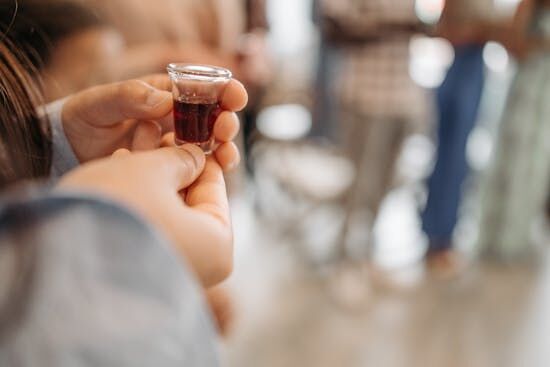
Photo by Pavel Danilyuk
Then, just like Jesus and the disciples sang a hymn after the Last Supper, the congregation will sing together before a final prayer and dismissal (Matthew 26:30).
Who can participate in the Lord’s Supper in an Adventist Church?
Adventists practice what’s called “open Communion.” Anyone who has accepted Christ can partake of the Lord’s Supper.
Thus, we don’t require someone to be a member of the church to participate. But we encourage all who do come to have an attitude of humility and repentance.
People receive the greatest blessing when they come in faith, leaning on the merit of Jesus, who offered His body and shed His blood for us. Through Communion, we commune with Him.
Want to learn more about what Jesus did for humanity?
Choose an Online Bible Study
Want to keep learning? Find out more about Jesus, humanity, the plan of salvation, and how God loves you enough to sacrifice everything, just to give you a chance to choose Him.
Sometimes it can be hard to know where to start, that’s why we offer free, user-friendly, online Bible study options you can do anytime, anywhere, and at your own pace.
This online Bible school will take you through the major themes of Scripture, breaking down the Bible’s complex concepts into bite-sized pieces, which can lead you toward the answers of life’s more challenging questions.
- Seventh-day Adventists Believe (General Conference of Seventh-day Adventists, 2005), p. 231. [↵]
Related Articles
More Answers
Adventist Beliefs
Learn how the 28 Fundamental Beliefs summarize and describe Seventh-day Adventism. They are not a checklist of requirements; instead they show how Adventists interpret and apply Scripture.
What Do Adventists Believe About the Authority of the Bible?
Learn how one really old book (the Bible) is the sole foundation for all Seventh-day Adventist beliefs.
Is the Soul Immortal? Exploring What Adventists Believe
Based on the way the Bible describes humanity in comparison to God and angels, Seventh-day Adventists believe souls are not something you have, but something you are.
What Do Adventists Believe About the Mark of the Beast and 666?
It’s a popular topic, especially during tumultuous times. When everything around you feels chaotic, it’s easy to wonder about the end of the world, and topics like the mark of the beast, as mentioned in Revelation 13, can stir up uneasiness.
What Do Adventists Believe About the Atonement?
If you’ve spent much time in the Bible books of Leviticus or Numbers, you might’ve noticed the word atonement.
Do Seventh-day Adventists Believe Only They Will Go to Heaven?
No, Adventists definitely don’t believe they’re the only ones that will go to heaven. As a matter of fact, we don’t believe admittance into heaven is ever based on which church or denomination we belong to. People all over the world from different Christian denominations, religions, and walks of life will be welcomed by Jesus.
How Adventists Developed the Sanctuary Doctrine and What It Means
The sanctuary was a building at the center of ancient Israelite society that gives us a small picture of the original sanctuary, God’s throne room in heaven (Hebrews 8:1-2).
What Do Adventists Believe About Faith and Works?
Adventists believe we are saved by faith, which is the belief and trust we have in Jesus to save us from our sins. Jesus, then, enables us to live in harmony with God’s commandments and serve others with love—sometimes referred to as “works.”
Do Seventh-day Adventists Believe in Hell?
Seventh-day Adventists believe that any human being who accepts God’s free gift of salvation through Jesus will be given eternal life. But what about the eternal fate of those who choose not to accept Jesus?
Sola Scriptura—What It Means and Why It Matters
Sola scriptura is a term that originated during the Protestant Reformation. It represents the way many Christians view the Bible and its authority. While the idea is simple enough, there is so much more to sola scriptura than its basic definition.
Do Seventh-day Adventists Believe in the Secret Rapture
The secret rapture belief asserts that the followers of Jesus will be suddenly and stealthily “raptured” from earth and taken to heaven. Then, any people left on earth will face a period of great difficulty—before Christ’s second coming actually happens.
Why do Adventists Emphasize Religious Liberty?
Adventists see religious liberty as an essential human right. After all, God endowed humanity with freedom of choice from the very beginning. So we believe it’s best for governments to also support their citizens’ rights to worship based on their convictions.
What Seventh-day Adventists Believe About Growing in Christ
Christian growth is the experience of allowing Jesus Christ to work in our lives through the Holy Spirit and restore in us the image we were designed for—God’s image of selfless, other-centered love.
What Do Seventh-day Adventists Believe about the New Earth?
Seventh-day Adventist, like other Christians, believe that after the second coming of Christ, God will cleanse our earth by fire and then restore it back to Eden-like perfection.
What Adventists Believe About the Millennium and the End of Sin
As most Christians, Seventh-day Adventists hope for the time when sin and evil will no longer exist. The Bible teaches that God will bring an end to sin after a thousand-year period of time called the millennium.
What Are Seventh-day Adventists Beliefs on Death and the Resurrection?
The thought of dying can seem scary. And the idea of being resurrected—or coming back to life—can seem a little uncomfortable.
What Do Seventh-day Adventists Believe about The Second Coming of Christ?
The second coming of Jesus Christ is an event the Bible prophesies will occur at the end of this world’s history. It’s called His second coming to distinguish it from His first, when Jesus was born to Mary and lived as a human before dying on the Cross.
What Adventists Believe About Jesus’ Ministry in the Heavenly Sanctuary
The ancient Israelite sanctuary had a daily service and a yearly service. Jesus’ death on the Cross and His ministry in the heavenly sanctuary reflect these services.
What do Seventh-day Adventists Believe about Marriage and Family?
The Seventh-day Adventist Church believes God established marriage and the family unit to be blessings to humanity. They make up a relational structure that can reflect the multifaceted nature of God’s love.
What Seventh-day Adventists Believe about Christian Behavior
The patterns of actions and words that make up behavior are central to any type of belief system because they flow from those beliefs. Seventh-day Adventists look to the Bible, with Jesus as the perfect example, for guidance on shaping our daily behavior.
What do Seventh-day Adventists Believe about the Sabbath?
Seventh-day Adventists believe that the biblical Sabbath is a beautiful gift of rest that God gave to us at Creation and that remains valid to this day. Falling on the seventh day of the week—Saturday—it connects us to God in a special way and offers us a weekly opportunity to be physically, mentally, and spiritually refreshed.
What Seventh-day Adventists Believe about Stewardship (and What Does It Mean?)
Love for God and our fellow humans is the overriding principle of the Seventh-day Adventist faith. And we express that love in an overarching way through how we manage the things—material and immaterial—that God has entrusted to us.
What Do Adventists Believe About the Law of God?
Seventh-day Adventists believe that God’s law reflects His character of love (1 John 4:8; Romans 13:10). It is perfectly summarized in the Ten Commandments given to Moses on Mount Sinai, showing us the practical application of loving God and loving other people.
What Do Seventh-day Adventists Believe About the Gift of Prophecy?
Adventists believe the gift of prophecy is a spiritual gift that the Holy Spirit gives to specific individuals to help the church carry out Jesus’ Great Commission (Matthew 28:16–20). Prophecy helps strengthen, encourage, and comfort His people (1 Corinthians 14:3).
What Seventh-day Adventists Believe About Spiritual Gifts in the Bible
Seventh-day Adventists believe that spiritual gifts are talents that the Holy Spirit gives to believers and followers of Jesus Christ. These gifts are different but complementary, and they often equip followers of Christ with the ability to spread the good news about Jesus and encourage its members.
What do Seventh-day Adventists Believe about Baptism?
Like many Protestant Christians worldwide and throughout history, the Seventh-day Adventist Church believes in baptism, a ceremony in which individuals go under water to publicly demonstrate dying to an old life and beginning a new life in Christ. We baptize people by immersion, as taught and exemplified in the Bible.
What Do Seventh-day Adventists Believe about Unity in Christ?
Seventh-day Adventists believe in biblical unity—the idea of believers in Jesus being united by the truth of the Bible and the common goal of representing God and His love to the world.
What do Seventh-day Adventists Believe about the Remnant and its Mission?
The “remnant” are a group of faithful believers that have existed throughout history and proclaimed God’s truth, love, and plan to save humanity. They “remain” with God even amid persecution and also when it seems everyone else has rebelled against God or compromised their beliefs.
What do Seventh-day Adventists Believe about the Church?
Seventh-day Adventists believe that the idea of the church is an important biblical concept.
Didn’t find your answer? Ask us!
We understand your concern of having questions but not knowing who to ask—we’ve felt it ourselves. When you’re ready to learn more about Adventists, send us a question! We know a thing or two about Adventists.


